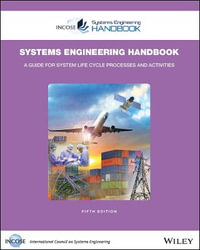Understand hydrogen as an energy resource and its potential as a dynamic solution for a carbon-neutral economy
Hydrogen is an energy carrier that can be used to store, move, and deliver energy produced from other sources. It has the potential for high energy efficiency, significant environmental and social benefits, and economic competitiveness. Traditional energy resources will not be able to meet the growing energy demand, despite the advances in energy management and energy conservation—understanding how hydrogen energy can solve this problem is crucial.
Hydrogen Energy: Principles and Applications provides the information needed by energy resource planners, scientists, engineers, and government officials to make informed energy-related decisions. Divided into three parts, the book opens with an introduction to various energy issues, sources, and regulations, including the basics of thermodynamics and fuel cells. The second part addresses the practical aspects of hydrogen energy, such as availability, distribution, extraction, processing, purification, transportation, transmission, and storage. The final section details the economics, energy-environmental interactions, and ethical and political considerations of the development and use of hydrogen energy, including discussion of investment and business contacts, energy option analysis and optimization, and future prospects.
Covering the fundamentals of hydrogen energy with a thorough and accessible approach, the book:
- Equips readers with a well-rounded working knowledge of hydrogen energy
- Covers the latest technological advances, economic considerations, and the role hydrogen plays in a renewable energy economy
- Offers a pragmatic, real-world perspective rather than focusing on theoretical issues
- Contains nearly 50 illustrative examples ranging from elementary thermodynamic calculations to optimization applications using linear programming
Hydrogen Energy: Principles and Applications is a must-read for those working in the energy industry, particularly environmental engineering and science professionals, as well as government officials, policymakers, instructors, and trainers involved in energy-related fields.
























